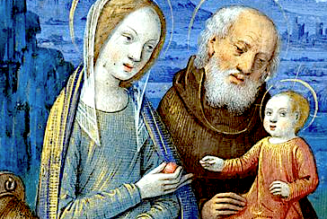
This weekend, the brilliant formerly-Muslim atheist, writer, and Nobel Peace Prize nominee Ayaan Hirsi Ali announced to the world that she is now a Christian. Almost immediately, suspicions about the sincerity and the reality of her newly claimed faith were voiced by both secular thinkers she left behind and some Christians. Are her reasons for conversion good? Does she know what she is doing?
She herself admits, “I have a great deal to learn about Christianity” and “discover[s] a little more at church each Sunday.” But that is not a problem—even the greatest minds of Christian history have a great deal to learn. One of the first names given to Christianity was “the way” (Acts 24:14). Ayaan Hirsi Ali is on the way, not merely thinking Christian thoughts but daring to live as if God exists.
A Somali-born Muslim, Ali moved to the Netherlands in 1992 in large part to escape a forced marriage. A brilliant woman who ended up learning six languages, she earned a master’s degree in political science from Leiden University and began working with a center-left political party. After 9-11, her disillusionment with Islam grew, and by the next year she announced a disbelief in God. While serving in the Dutch Parliament, she collaborated with Theo Van Gogh on a film about Islam’s treatment of women titled Submission. The film and her forceful criticisms of Islam earned the enmity of much of the Muslim population. Van Gogh was murdered, and Hirsi Ali was forced into hiding. After controversy over her Dutch citizenship (she had altered some details of her biography, including using her grandfather’s surname, “Ali,” when applying in order to evade relatives angry about her refusal of the forced marriage), Hirsi Ali moved to the United States in 2006. She has since worked for the American Enterprise Institute, Harvard’s Kennedy School of Government, and the Hoover Institution while churning out a series of successful books and raising two children with her husband, historian Niall Ferguson.
In her article at Unherd, “Why I am now a Christian,” Hirsi Ali begins in that time after 9-11 when she was horrified by the attacks done and defended in the name of Islam. She experienced “cognitive dissonance” from the fact that “many eminent leaders in the West — politicians, scholars, journalists, and other experts” had “insisted that the terrorists were motivated by reasons other than the ones they and their leader Osama Bin Laden had articulated so clearly.” That cognitive dissonance eased when she read the philosopher Bertrand Russell’s 1927 essay “Why I am Not a Christian.”
While secularists often accuse religious believers of adopting faith merely as a consolation in the face of fear, Hirsi Ali admits that her own adoption of Russell’s atheism was motivated in large part by such considerations. Her teen years, lived under the instruction of the Muslim Brotherhood, had provided excitement because of the emphasis on being “activists” and not mere “passive believers.” “We didn’t just say things or pray for things: we did things.” From donning burkas and forsaking make-up to charitable actions and “demand[ing] that non-Muslims convert to Islam,” it was a thrill. But along with excitement, there was the perpetual threat of punishment for things she loved: “reading novels, listening to music, dancing, and going to the cinema….” There was also the command to refrain from friendship with and even to “hate and curse” those who would not convert to Islam—especially the Jews, for whom was reserved “a special hatred.” She was instructed to curse the Jews multiple times a day or face punishment for disloyalty to Allah.
With this as background, she explains why “atheism seemed so appealing.” Russell’s unbelief “offered a simple, zero-cost escape from an unbearable life of self-denial and harassment of other people. For him, there was no credible case for the existence of God. Religion, Russell argued, was rooted in fear: ‘Fear is the basis of the whole thing — fear of the mysterious, fear of defeat, fear of death.’” In getting rid of God, she thought she had gotten rid of fear. Fellow atheists Christopher Hitchens and Richard Dawkins were both “clever” and “a great deal of fun.”
But the consolation she felt in getting rid of God and clinging to western ideas of freedom was short-lived. Looking at the threats to western civilization, she discovered that western civilization isn’t something that runs itself. It requires an answer to the question “what is it that unites us?” And she discovered that neither the cry “God is dead!” nor the creed of a “rules-based international order” will do. Atheism cannot answer the “simple question” of “the meaning and purpose of life.” Thus, it “is too weak and divisive a doctrine to fortify us against our menacing foes,” whether they be Chinese communism, Putin’s aggression, the Mullahs of Iran, or the “jumble of irrational quasi-religious dogma” that is the modern cult of wokeness. “The only credible answer,” she concludes, “lies in our desire to uphold the legacy of the Judeo-Christian tradition.”
Western civilization, that is to say, has more to do with religion than geography. It “consists of an elaborate set of ideas and institutions designed to safeguard human life, freedom and dignity—from the nation state and the rule of law to the institutions of science, health and learning.” She appeals to the secular historian Tom Holland’s case, made in his book Dominion, that all these glorious flowers “find their roots in Christianity.” Unlike Islam, which has always been a potent mix of politics and religion, Christianity provides a “circumscribed role for religion as something separate from politics.”
While the secular apostles such as Steven Pinker reacted with calls to return to the old-time religion of the Enlightenment, it is clear that Hirsi Ali cannot believe in the myth of the modern world sprung whole from the minds of a few secular European philosophers. No, they were able to pick some of the finest flowers of the Christian heritage, but without a belief in the Fatherhood of God, the Brotherhood of Man has been a bust.
But the question remains: is this Christian faith? Given her emphasis on preserving civilization, it does indeed sound utilitarian. Christian professor Adam Ellwanger cast doubt on her declaration: “No mention though, as to whether she sees the core claims of Christianity (Christ’s death, resurrection, and his substitutional atonement for the sins of the world) as TRUE,” adding, “Faith in the truth of those claims is the defining characteristic of a Christian.”
While such questions about her specific doctrinal beliefs are important, it is important to note that her declaration is not a full profession of faith nor a systematic theological treatise. It is an announcement and a beginning argument for Christianity to friends and followers for whom such specifics of theology might be wasted. The great Victorian Catholic John Henry Newman once observed that the arguments for Christianity offered by writers “are hints towards, and samples of, the true reasoning” that those writers themselves engaged in. Writer Mary Harrington speculated that despite Hirsi Ali’s “utilitarian way of talking about Christianity in this essay…I bet any money she had a full-on Damascene conversion and it’s just too personal to talk about.” Given Hirsi Ali’s reference to Christianity’s “compassion for the sinner and humility for the believer,” as well as to “my own long journey through a wilderness of fear and self-doubt,” Harrington’s bet seems a winner.
Hirsi Ali may well be shy about discussing the theological and spiritual depths of her journey. And, given her role as a public thinker, this may be just as well. The writings of Christian apologists, Newman said, are chosen to “excite and direct trains of thought” in the reader. Hirsi Ali’s Christian apology here may not fit the mold of a certain kind of Christian testimony, but it says something very true that may well excite and direct the trains of many searchers’ thoughts. As Christian philosopher Nancy Pearcey summarized, Hirsi Ali makes the case for Christianity “understood as a comprehensive worldview that can stand against competing worldviews, from naturalism and materialism to Islam.”
Even if Hirsi’s own personal faith were the size of a mustard seed, we are reliably informed that it will move mountains. And even if it were more theoretical than personal, it would still make sense to encourage her to act as a Christian. The late Pope Benedict XVI famously challenged the children of the Enlightenment, such as Hirsi Ali lately considered herself, in the face of their loss of the norms created by Christianity: “Even one who does not succeed in finding the way of accepting God, should, nevertheless, seek to live and to direct his life ‘veluti si Deus daretur,’ as if God existed.”
Hirsi Ali’s account of her own newfound Christian conviction seems to hint that she has discovered this truth. She sees that Christian commitment seems to be theoretically necessary for the fruits of civilization she loves. But more than that, she sees that it is personally necessary for her to believe. She dares to live and direct her life as if God exists.
David P. Deavel teaches at the University of St. Thomas in Houston, Texas, and is a Senior Contributor at The Imaginative Conservative. Follow him on X (formerly Twitter) @davidpdeavel.
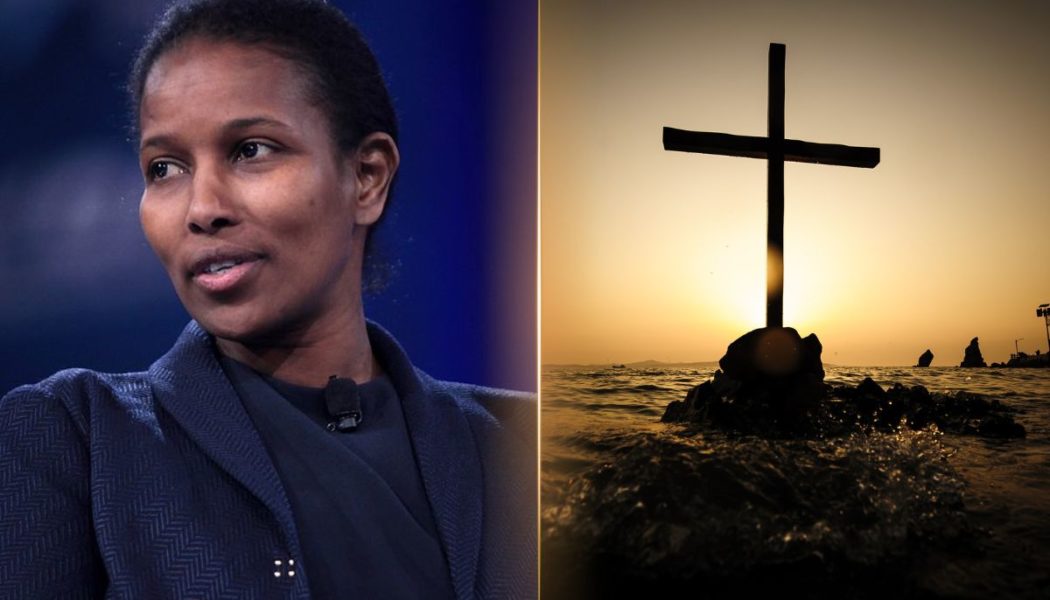
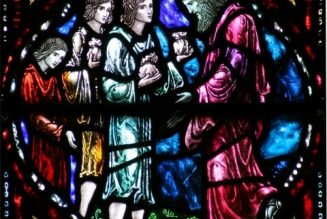

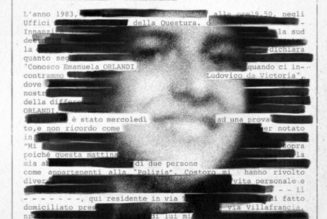
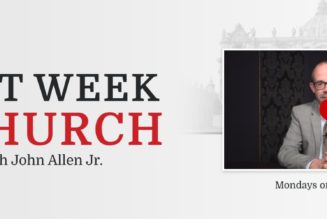

![Vatican Note on the Morality of Using Some Anti-COVID-19 Vaccines [Full Text]…](https://salvationprosperity.net/wp-content/uploads/2020/12/vatican-note-on-the-morality-of-using-some-anti-covid-19-vaccines-full-text-327x219.jpg)
